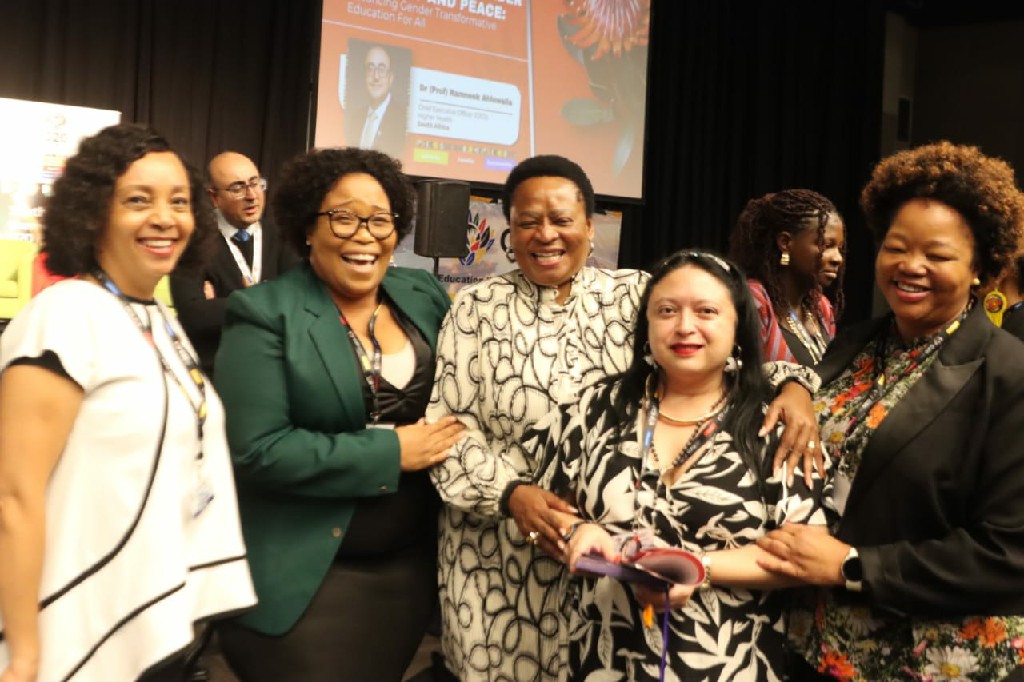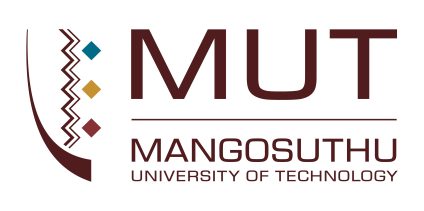
It was an exhilarating day of robust engagement and global networking opportunities for delegates who attended the G20 Pre-Summit Seminar, entitled ‘Education for Gender Equality and Peace: Advancing Gender Transformative Education for All’. The seminar took place at the Durban International Convention Centre (ICC) on 1 July 2025. This multi-stakeholder seminar brought together world leaders, government officials, youth activists, civil society representatives, academics, and other stakeholders to discuss the role of education in promoting gender equality, gender justice, and societal transformation. The event underscored the importance of gender transformative education and leadership that challenge and dismantle oppressive gender norms, stereotypes and practices prevalent in society and educational settings.
High-profile dignitaries who attended the seminar included the Premier of KwaZulu-Natal, the Honorable Thami Ntuli, who delivered the welcoming address; Deputy Minister: Basic Education, Honorable Dr Regina Mhaule, who delivered the opening address; Deputy Chairperson: Commission on Gender Equality, Prabashnie Subrayan-Naidoo, and Deputy Minister: Higher Education, Honorable Buti Manamela, who delivered the keynote address. Guest speakers included Minister of Education in Sierra Leone, Honorable Conrad Sackey; Director of Education in Burkina Faso, Dr Maimouna Kera; and South African Principals’ Association, Linda Shezi. MUT was represented by Training and Development Coordinator: MUT Gender Forum, Dr Paulette Naidoo; and Secretary of the MUT Gender Forum, Pinky Khoza.
Dr Naidoo said the MUT Gender Forum prioritises issues of gender equity and transformation and takes a keen interest in platforms where such matters are elevated for engagement. The programme included a multi-stakeholder plenary discussion on gender-based violence in schools and tertiary institutions, featuring international experts in the fields of gender equality and gender-transformative education. These included Antara Ganguli, Head of the United Nations Girls’ Education Initiative (UNGEI) Secretariat, who pointed out that “gender norms are like prisons. We are not born into them, but as we grow up society builds them around us. A gender-transformative education can dismantle these walls,” Ganguli pointed out, highlighting the positive outcomes of UNGEI’s interventions in accelerating gender equality-based learning outcomes.
According to Dr Naidoo, who is also the Acting Dean of Students, the panel discussion on the Freetown Manifesto and the critical role of Gender-Transformative Leadership was particularly insightful, as it confronted the pervasive disjuncture between policy and practice across various contexts and countries. The focus of the discussion included Gender-transformative leadership in education policy, including the ‘Gender at the Centre’ initiative; practical strategies to embed gender equality in the curriculum; aligning technical knowledge with transformative leadership requirements; and the successful application of Gender-transformative education (GTA) in different countries and settings.
It was noted that while South Africa has some of the most advanced human rights and gender transformative legislature globally, the practical application of these policies to real-world settings remains a challenge. Dr Naidoo said the journeys and insights shared by the various panel members was well-received by the audience, “who will no doubt seek to explore and apply the innovative knowledge and strategies to their own contexts and communities”.
Other thematic focus areas unpacked during the seminar included eradicating gender stereotypes through education; vulnerabilities of boys in the context of harmful gender norms and socialisation; inclusive and diverse sexual gender identities in education and the importance of cross-sectoral collaboration.
Reflecting on the G20 Seminar, the MUT Gender Forum members were of the view that this event resonated deeply with the gender equality transformation imperatives of the Gender Forum and the strategic objectives of MUT as a progressive University. Dr Naidoo said that the delegates expressed their gratitude for the opportunity to engage in critical dialogue, to share innovative ideas and to explore possible solutions that promote a just, more equitable educational system and society. “We are now looking forward to transferring these insights to the MUT context and intend to actively build on the local and international networks that were forged during this event, in the interests of advancing the MUT global brand and transformation agenda,” said Dr Naidoo.
